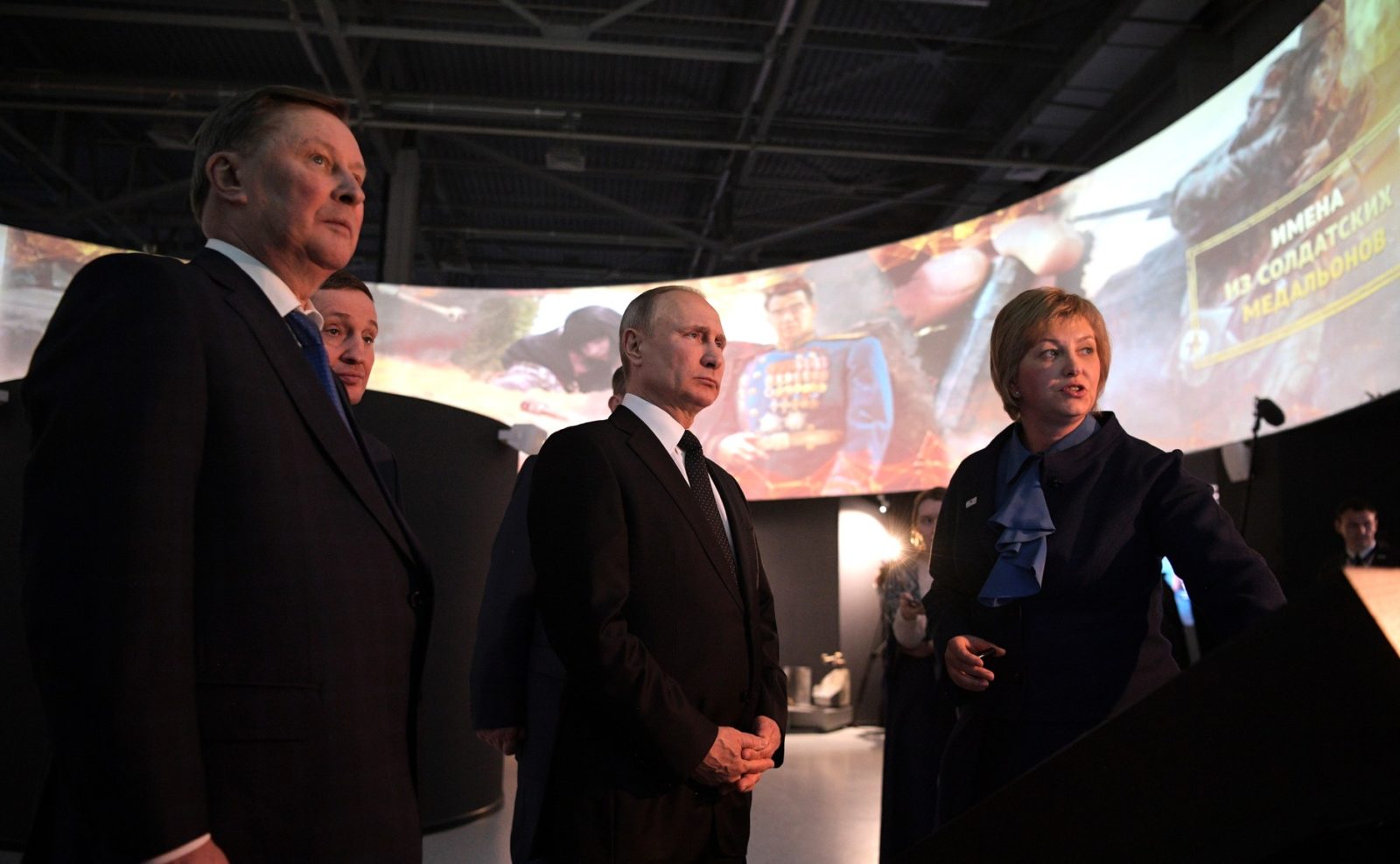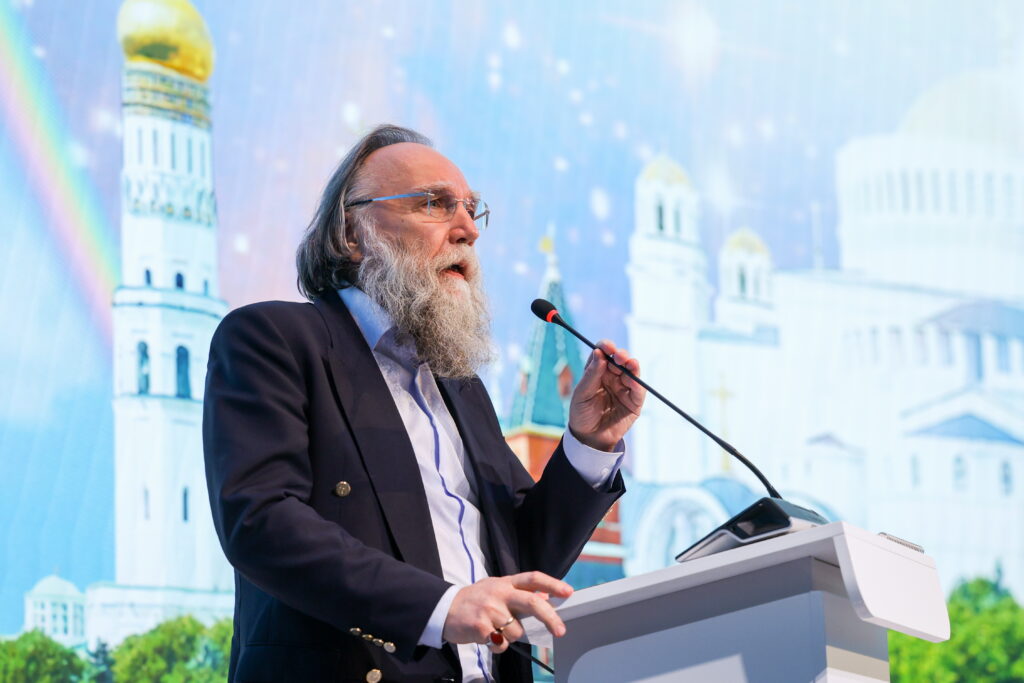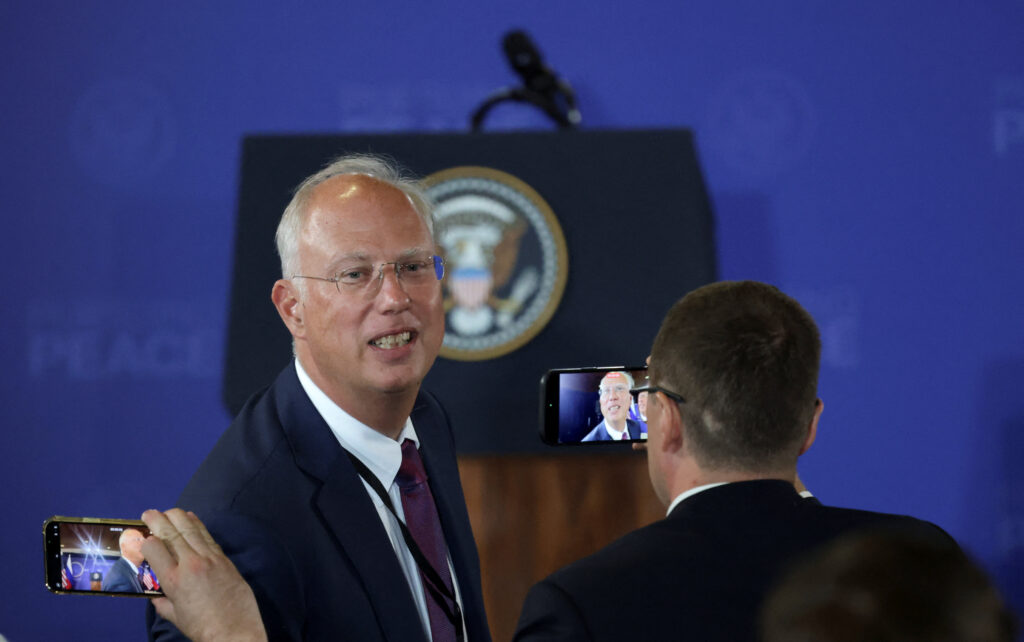Russia has entered an era of confrontation. In general, its citizens do not feel safe after years of frosty relations with other states, and various high profile hunts for “internal enemies”. According to opinion polls carried out by the Levada Center in March 2016, 81 percent of Russians believe that the nation has enemies. It follows that war is perceived as inevitable in one form or other. The main adversaries cited are the following external enemies: ISIS (57 percent), the US (57 percent), NATO (32 percent) and Ukrainian nationalists (25 percent). 12 percent of respondents mentioned an internal enemy – “the fifth column”.
Russian news media devote most of their airtime to enemies of the people. Aside from focusing largely on various military chronicles, journalists frequently report on online disinformation — that is, perceived attempts to destabilize the status quo and to “brainwash” naïve citizens. It comes as no surprise that society has begun to see itself as a victim in this state of external and internal conflict. Of course, this is not the kind of conflict depicted by numerous films about the Great Patriotic War. Russians are well aware that today’s war is instead an information war. 69 percent of respondents acknowledge that information war is being waged. Moreover, the majority (57 percent) are convinced that the West and Russia are engaged in combat in the media space.

How is this information war perceived in public consciousness? Mostly the nature of information warfare remains hard for the public to define. One common theme is that it is not perceived as a “hot”, fully-fledged war; the conflict remains largely hidden to the public, shrouded in mystery, and so do its outcomes. The public is left to guess at who are the clear winners or losers.
– I can’t grasp it. It is something we are not aware of. It seems that we don’t know the truth about information warfare – Says one of the respondents during the focus group
The key principle behind these sorts of “combat operations” is clear: information warfare implies the creation of a different coverage of events, which results in a number of opposing facts about the same event. That’s why information warfare concerns every Russian: it offers a multitude of interpretations of events and a citizen is therefore tasked with choosing the truthful version:
– What I meant was that the information agenda is different, it’s like information warfare to a certain extent. Events are covered in a different way… completely. That’s why people interpret them in a different way… politics
However, the main difference between information and conventional warfare lies in the fact that it is up to an individual whether s/he decides to recognize information warfare or not. Respondents who are not interested in news mention information warfare less frequently (38 percent) than the average citizen (69 percent). The more sources of information an individual accesses, the more often he or she “recognizes” information warfare.
Information warfare between Russia and the West
Information confrontation between Russia and Western countries is most noticeable. Involvement in the contemporary Russian information field inevitably turns an ordinary viewer into a participant in this war. Undoubtedly, this puts an average Russian in a stressful situation, since s/he becomes a victim of a treacherous attack:
– This policy, information warfare… has been conducted by the West for decades… now Russians are hated in the post-Soviet space: in Ukraine, let’s say, the Baltic States, Estonia.
The Russian media repeatedly reconstruct the model of attack, heroic confrontation and ultimate defeat of the enemy. Just 26 percent of respondents (of those who believe in the existence of information warfare) cite Russia and 17 percent cite the West – in response to the question about who is winning the information war between the West and Russia. The way in which a citizen answers this question is dependent, first of all, on the rhetoric and style of news coverage presented by the outlet via which the individual accesses news. Respondents who access information via media outlets which express criticism of the authorities are somewhat more likely to attribute victory to Western countries (by 7 percentage points). On the whole, the difference is not significant.
Nearly one-third of respondents believe that there are no winners in information warfare: either at a given moment or ever (there are no winners in this kind of war in principle). In fact, the difference between these two answers does not really matter since Russia is in a state of permanent conflict with the Western world according to contemporary mythology. This confrontation takes the form of open combat operations at times but is largely limited to “cold”, ideological war. Fear of a direct military conflict – a third world war – has waned following some easing of the tension at Russian borders. The level of fear over the prospect of a third world war fell from a score of 3.47 points (on a 5-point scale) to 3.19 points between 2014 and 2015.
Information warfare within the country
The slightly de-escalated tensions with the US over the last year or so, and a lack of spectacular victories abroad in that time, have compromised the fundamentals which cement the public consensus. The approval rating of public institutions has returned to the level of 2011-2013. Interest in domestic policy has risen due to the activity of Alexey Navalny and the re-emergence of the protest agenda, among other reasons. Fittingly, confrontation between the authorities and the opposition in the information space has come to the fore. The fight between the power elite and the opposition is not necessarily perceived as a normal phenomenon by citizens: nearly 30 percent of Russians polled believe that the opposition is redundant in principle. Fears that a conflict may escalate to civil war proportions are hardly surprising; the state-owned media stop at nothing in their attempts to convince citizens that the role of the Russian (non-systemic) opposition is a destructive one.
This conflict is presented in a reduced form on TV: it is important to destroy the enemy without giving him the opportunity to speak. Nevertheless, 14 percent of respondents are aware of the information warfare that rages on between the power elite and opposition in Russia which means that there is some potential for development. The barometer used to gauge the fervency of public debate is broken. Still, attitudes to state ideology can be determined by looking at levels of trust enjoyed by television news media. If an individual has access to a limited number of TV channels, his decision to watch TV or not (trust or mistrust it) is dependent not only on his age and lifestyle but also on his attitude to broadcast information. By studying levels of trust in TV, we are able to gauge not only the attractiveness of the content itself but also the approval rating of the incumbent government.
Do you trust information broadcast on major TV channels?

It is noteworthy that a survey carried out in March 2017 was conducted a few days after the release of the video “Don’t call him Dimon” by the Anti-Corruption Foundation. A question of trusting information on broadcast TV did not appear in the 2014 survey, a year we can assume marked a highpoint for public trust in broadcast TV, but first appeared in a 2015 survey. Compared to 2015, the fall in 2017 is quite significant: 11-12 percentage points. Nevertheless, the Russian government is still much stronger than the opposition, although the altercation in the information field is becoming ever more embittered.
The outcome of the online confrontation between the opposition and the authorities has brought about changes to the agenda of information warfare and has reduced the role of traditional media. Not only do young Russians predominantly access news via the Internet but they also choose to ignore the prospect of a conflict with the West. Young people have a much stronger desire to develop relations with Western countries than all other age groups and share a far more positive attitude towards the US, for example. Only 60 percent of young Russians acknowledge the existence of information warfare compared to 69 percent overall. For Russians on the whole, television remains the main source of information and the mobilization potential of confrontation with external enemies is yet to be exhausted. However, the inevitable generational change may bring about a situation where the very idea of information warfare as a means of rallying Russian citizens against external and internal enemies will lose its former efficacy.









